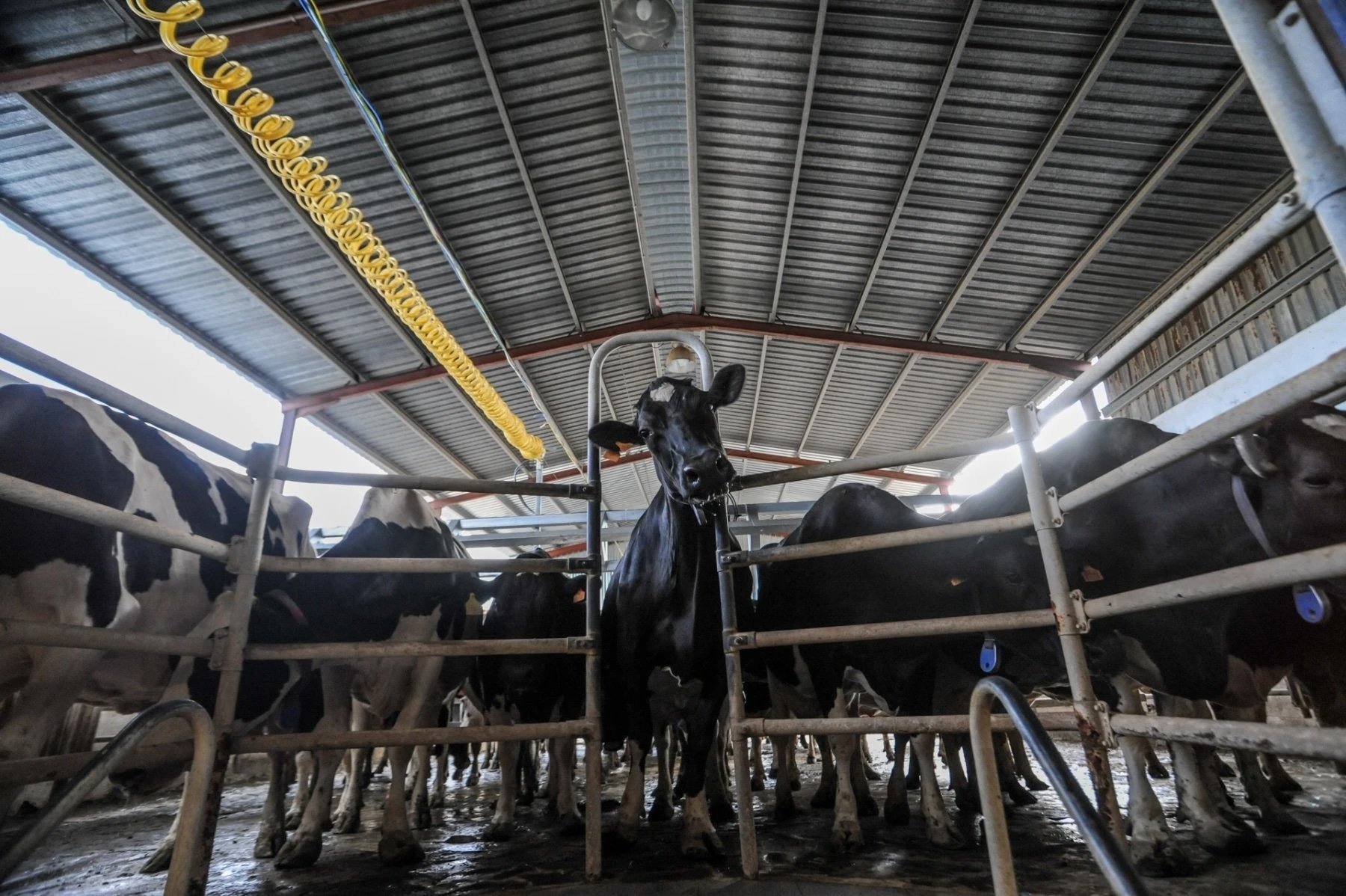The number of US dairy farms infected with bird flu has been underestimated, suggests new study from the CDC
Government testing reveals that livestock veterinarians have tested positive for the H5N1 virus despite working on farms that had no reported cases in cattle.
The bird flu crisis on dairy farms in the US is continuing to deepen as new data suggests the spread is more widespread than previously recorded.
Published this week by the US Centers for Disease Control and Prevention (CDC), a new study reveals that workers are testing positive for the H5N1 bird flu virus despite working on farms that had not reported any virus-infected cattle.
In the research, scientists tested 150 bovine veterinarians who had all worked with dairy herds in the previous 3 months. Samples from three of the participants were found to have antibodies to the virus, suggesting a recent H5N1 infection.
All three positive cases were unaware of having the infection, and did not recall displaying any symptoms, including conjunctivitis which has been the most commonly reported symptom for infected humans.
This finding shows the difficulty for health authorities to accurately track the amount of human infections, as the virus can remain undetectable in those that are asymptomatic and are unaware they have the virus.
Credit: Jo-Anne McArthur/We Animals Media
"It means our surveillance is inadequate," Lauren Sauer, a professor at the University of Nebraska Medical Center College of Public Health, told NPR. "If cases are occurring more frequently than detected in humans, we risk missing small changes that allow the virus to begin to spread much more easily in humans.”
Scientists fear that with each infection, the virus has a chance of mutating and becoming more dangerous and more efficient in infecting humans.
The CDC’s latest findings also raise further concerns of just how underestimated the spread of bird flu is on US dairy farms. One of the workers who tested positive reported that they only worked in two states, Georgia and South Carolina, both of which have no known or suspected H5N1 virus-infected cattle.
Samples of cow’s milk at US grocery stores have previously tested positive for bird flu.
It is important to note that the CDC study was conducted back in September 2024. Since then, the virus has spread further and infected more humans, which could mean that the same study repeated today could report higher results.
According to CDC data, 16 states so far have reported H5 bird flu outbreaks in dairy herds. Georgia and South Carolina, where one of the virus-infected vets exclusively worked, are not currently on this list.
Just last week, a new variant of bird flu was discovered in dairy herds in Nevada. Government officials said that the genetic mutation, known as D1.1, may help the virus replicate itself in mammals, including humans.
“We have never been closer to a pandemic from this virus,” immunologist and former federal health official Rick Bright explained in an interview with Fortune about the new variant. “And yet, we are still not doing enough to prevent it, or reduce its impact when it hits.”
We Have A Favor To Ask…
Species Unite amplifies well-researched solutions to some of the most abusive animal industries operating today.
At this crucial moment, with worldwide momentum for change building, it’s vital we share these animal-free solutions with the world - and we need your help.
We’re a nonprofit, and so to keep sharing these solutions, we’re relying on you - with your support, we can continue our essential work in growing a powerful community of animal advocates this year.






